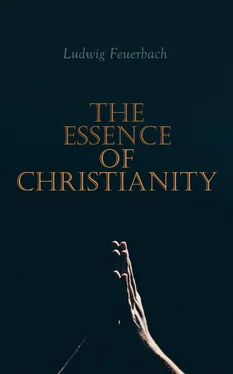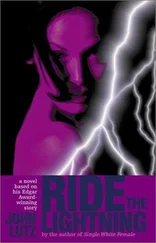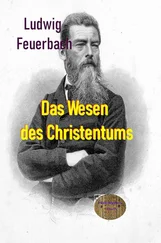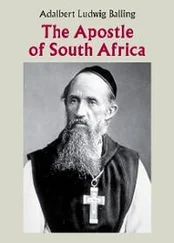Ludwig Feuerbach
The Essence of Christianity
Religious Classic
Translator: George Eliot
e-artnow, 2021
Contact: info@e-artnow.org
EAN: 4064066388614
Preface.
Chapter I. Introduction.
Part I.
The True or Anthropological Essence of Religion.
Chapter II. God as a Being of the Understanding.
Chapter III. God as a Moral Being, or Law.
Chapter IV. The Mystery of the Incarnation; or, God as Love, as a Being of the Heart.
Chapter V. The Mystery of the Suffering God.
Chapter VI. The Mystery of the Trinity and the Mother of God.
Chapter VII. The Mystery of the Logos and Divine Image.
Chapter VIII. The Mystery of the Cosmogonical Principle in God.
Chapter IX. The Mystery of Mysticism, or of Nature in God.
Chapter X. The Mystery of Providence, and Creation Out of Nothing.
Chapter XI. The Significance of the Creation in Judaism.
Chapter XII. The Omnipotence of Feeling, or the Mystery of Prayer.
Chapter XIII. The Mystery of Faith—The Mystery of Miracle.
Chapter XIV. The Mystery of the Resurrection and of the Miraculous Conception.
Chapter XV. The Mystery of the Christian Christ, or the Personal God.
Chapter XVI. The Distinction Between Christianity and Heathenism.
Chapter XVII. The Christian Significance of Voluntary Celibacy and Monachism.
Chapter XVIII. The Christian Heaven, or Personal Immortality.
Part II.
The False or Theological Essence of Religion.
Chapter XIX. The Essential Standpoint of Religion.
Chapter XX. The Contradiction in the Existence of God.
Chapter XXI. The Contradiction in the Revelation of God.
Chapter XXII. The Contradiction in the Nature of God in General.
Chapter XXIII. The Contradiction in the Speculative Doctrine of God.
Chapter XXIV. The Contradiction in the Trinity.
Chapter XXV. The Contradiction in the Sacraments.
Chapter XXVI. The Contradiction of Faith and Love.
Chapter XXVII. Concluding Application.
Appendix.
Explanations—Remarks—Illustrative Citations.
1.
2.
3.
4.
5.
6.
7.
8.
9.
10.
11.
12.
13.
14.
15.
16.
17.
18.
19.
20.
21.
22.
Table of Contents
The clamour excited by the present work has not surprised me, and hence it has not in the least moved me from my position. On the contrary, I have once more, in all calmness, subjected my work to the severest scrutiny, both historical and philosophical; I have, as far as possible, freed it from its defects of form, and enriched it with new developments, illustrations, and historical testimonies,—testimonies in the highest degree striking and irrefragable. Now that I have thus verified my analysis by historical proofs, it is to be hoped that readers whose eyes are not sealed will be convinced and will admit, even though reluctantly, that my work contains a faithful, correct translation of the Christian religion out of the Oriental language of imagery into plain speech. And it has no pretension to be anything more than a close translation, or, to speak literally, an empirical or historico-philosophical analysis, a solution of the enigma of the Christian religion. The general propositions which I premise in the Introduction are no à priori , excogitated propositions, no products of speculation; they have arisen out of the analysis of religion; they are only, as indeed are all the fundamental ideas of the work, generalisations from the known manifestations of human nature, and in particular of the religious consciousness,—facts converted into thoughts, i.e. , expressed in general terms, and thus made the property of the understanding. The ideas of my work are only conclusions, consequences , drawn from premisses which are not themselves mere ideas, but objective facts either actual or historical—facts which had not their place in my head simply in virtue of their ponderous existence in folio. I unconditionally repudiate absolute , immaterial, self-sufficing speculation—that speculation which draws its material from within. I differ toto cœlo from those philosophers who pluck out their eyes that they may see better; for my thought I require the senses, especially sight; I found my ideas on materials which can be appropriated only through the activity of the senses. I do not generate the object from the thought, but the thought from the object; and I hold that alone to be an object which has an existence beyond one’s own brain. I am an idealist only in the region of practical philosophy, that is, I do not regard the limits of the past and present as the limits of humanity, of the future; on the contrary, I firmly believe that many things—yes, many things—which with the short-sighted, pusillanimous practical men of to-day, pass for flights of imagination, for ideas never to be realised, for mere chimeras, will to-morrow, i.e. , in the next century,—centuries in individual life are days in the life of humanity,—exist in full reality. Briefly, the “Idea” is to me only faith in the historical future, in the triumph of truth and virtue; it has for me only a political and moral significance; for in the sphere of strictly theoretical philosophy, I attach myself, in direct opposition to the Hegelian philosophy, only to realism , to materialism in the sense above indicated. The maxim hitherto adopted by speculative philosophy: All that is mine I carry with me, the old omnia mea mecum porto , I cannot, alas! appropriate. I have many things outside myself, which I cannot convey either in my pocket or my head, but which nevertheless I look upon as belonging to me, not indeed as a mere man—a view not now in question—but as a philosopher. I am nothing but a natural philosopher in the domain of mind ; and the natural philosopher can do nothing without instruments, without material means. In this character I have written the present work, which consequently contains nothing else than the principle of a new philosophy verified practically, i.e. , in concreto , in application to a special object, but an object which has a universal significance: namely, to religion, in which this principle is exhibited, developed, and thoroughly carried out. This philosophy is essentially distinguished from the systems hitherto prevalent, in that it corresponds to the real, complete nature of man; but for that very reason it is antagonistic to minds perverted and crippled by a superhuman, i.e. , anti-human, anti-natural religion and speculation. It does not, as I have already said elsewhere, regard the pen as the only fit organ for the revelation of truth, but the eye and ear, the hand and foot; it does not identify the idea of the fact with the fact itself, so as to reduce real existence to an existence on paper, but it separates the two, and precisely by this separation attains to the fact itself ; it recognises as the true thing, not the thing as it is an object of the abstract reason, but as it is an object of the real, complete man, and hence as it is itself a real, complete thing. This philosophy does not rest on an Understanding per se , on an absolute, nameless understanding, belonging one knows not to whom, but on the understanding of man;—though not, I grant, on that of man enervated by speculation and dogma;—and it speaks the language of men, not an empty, unknown tongue. Yes, both in substance and in speech, it places philosophy in the negation of philosophy , i.e. , it declares that alone to be the true philosophy which is converted in succum et sanguinem , which is incarnate in Man; and hence it finds its highest triumph in the fact that to all dull and pedantic minds, which place the essence of philosophy in the show of philosophy, it appears to be no philosophy at all.
Читать дальше












